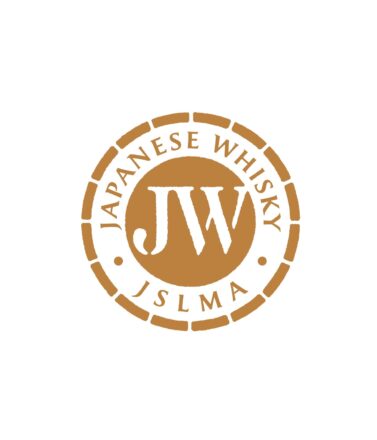At a press conference in Tokyo on March 27, the Japan Spirits & Liqueurs Makers Association (JSLMA) announced its intention to push for both Geographical Indication and a National Tax Agency directive about Japanese whisky. That’s good news for fans of the category, because we could soon have laws protecting it worldwide.
When the JSLMA standards for “Japanese whisky” were finally announced in February 2021, I said that while it’s a first step, better protections for the category still need to be provided.
I hoped the JSLMA would hammer out the specifics in the following years.
Instead, they went dark.
They were so quiet, I published an unofficial list of JSLMA-compliant Japanese whiskies on my own. Yes, it’s outdated. No, there still isn’t an official list. Then, in July 2024, the Japanese Whisky Promotion Committee (JWPC) was established mainly because of the JSLMA’s seeming reluctance to take the next step with their standard.
The primary goal of the JWPC–I sit on the Board of Trustees–is getting a legal definition of Japanese whisky. In practice, this means lobbying members of the National Diet to push the agenda forward. That’s the kind of thing you might need a caucus for!
There just so happened to be a “Japanese Drinks” caucus created on June 14, 2024 that aims to elevate the global standing of all Japanese drinks.
Mission Accomplished?
The Japanese Drinks Caucus contacted JWPC a few weeks ago, saying they wanted to use the seminar materials on the Diet’s floor.
To my knowledge, March 21, 2025 was the first time in history the phrase “Japanese whisky” entered the Diet’s record. Caucus Councillor Masahiro Ishida stressed to the Vice Minister of the National Tax Agency that industry standards alone aren’t enough for Japanese whisky: there needs to be legal protection.
Lighting a fire up under JSLMA’s… pot still
On March 24, the JSLMA held an emergency meeting internally, and on March 25, they met with the JWPC leaders.
This brings us to last week’s press conference. Despite expressing no interest in the subject until it was brought up in the Diet, the JSLMA now magically has a three-pronged plan to codify and protect Japanese whisky.
Part A: Obtain a Geographical Indication (GI) for Japanese whisky
A Geographical Indication (GI) is a protection afforded to a given product from a particular region of the world. The easy examples are tequila and Champagne, which must come from specific regions of Mexico and France, respectively.
Who offers that protection? Thanks to the TRIPS Agreement, any member of the World Trade Organization—whose 166 members account for over 95% of global trade and global GDP—must offer GI holders the right to prevent the use of marks indicating a product is from a particular region. The agreement also requires members to offer similar protections for grey-area cases, like calling a whisky “Bourbon-style Whiskey” or similar.
In Japanese drinks, Japan has already acquired a GI for “Japanese sake.”
One of the interesting aspects of GI is that some organization or governing body must certify products identifying as being from a particular region. You don’t get to call your agave-based spirit “Tequila” just because you made it in Jalisco, Mexico.
In our case, the JSLMA aims to establish exactly what constitutes a GI Japanese Whisky. Not all whisky made in Japan gets to use the GI Japanese Whisky.
This means the JSLMA needs to create a certification system for Japanese whisky.
They haven’t said precisely how they’ll accomplish that. Will the JSLMA dispense people to distilleries to ensure they’re not using imported whisky? What about distilleries with some products that won’t qualify as Japanese whisky but others that will?
Part B: JSLMA Japanese Whisky Mark
One thing that JSLMA has shown off is its new “JSLMA Japanese Whisky” mark. Presumably, this will be added to bottles of Japanese whisky leaving the country that meet the JSLMA’s standard, thus giving them GI protection.
In addition to GI, I have been calling for this since day one. So yes, fine by me!
The JSLMA has already applied for copyrights in several countries with this mark, so if someone uses it without permission, they could potentially run into legal trouble.

Part C: Push the National Tax Agency to issue a directive about Japanese whisky product quality
Parts A and B sound great for JSLMA members who are saccharifying, fermenting, distilling, and maturing their whiskies entirely in Japan.
But what about everyone else? There are dozens of licensed whisky distilleries in Japan that are not members of JSLMA.
This is where the National Tax Agency comes in. The idea is to get them to issue a notice setting standards for using the term “Japanese whisky.”
We discussed this extensively when the Tax Agency did the same for Japanese wine. The Japanese Whisky Promotion Committee also aimed for this.
The timeline
A member of the drinks press asked a great question during the press conference. Given that the JSLMA took about seven years to come up with a standard for Japanese whisky, how long is this going to take them?
While the JSLMA couldn’t provide a concrete answer, they estimated one or two years. We’ll see if that turns out to be accurate.
What Whiskey Richard Thinks
It’s about %#*@ing time.
This is something Japanese whisky needed at the latest a decade ago. Instead we’re in this shitshow where people can’t tell what is or isn’t the “real” Japanese whisky — even JSLMA’s own numbers show some 18% of whisky labeled as “Japanese whisky” in NYC aren’t Japanese whisky. And this is in 2025.
It’s also because they’ve waited so long that they’ll have to deal with a ton of edge cases. Kikori, for example, doesn’t claim to be a Japanese whisky, but it does say it’s a Rice Whiskey from Japan. There are many, many whiskies out there that don’t directly claim to be Japanese whisky, but they sure as hell masquerade as one. Is the JSLMA going to go after them too? How will they deal with bottles from distilleries that no longer exist?
As usual, we all have a lot of questions about this. Hopefully, they’ll be answered soon.
Hi there! I created and run nomunication.jp. I’ve lived in Tokyo since 2008, and I am a certified Shochu Kikisake-shi/Shochu Sommelier (焼酎唎酒師), Cocktail Professor (カクテル検定1級), and I hold Whisky Kentei Levels 3 and JW (ウイスキー検定3級・JW級). I also sit on the Executive Committees for the Tokyo Whisky & Spirits Competition and Japanese Whisky Day. Click here for more details about me and this site. Kampai!

